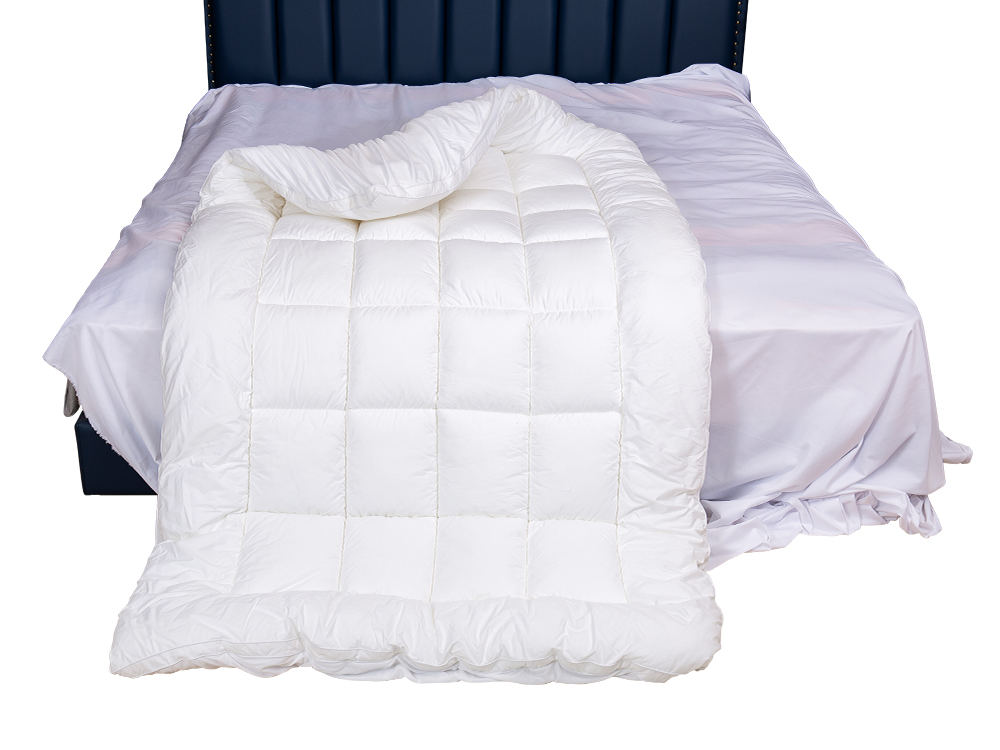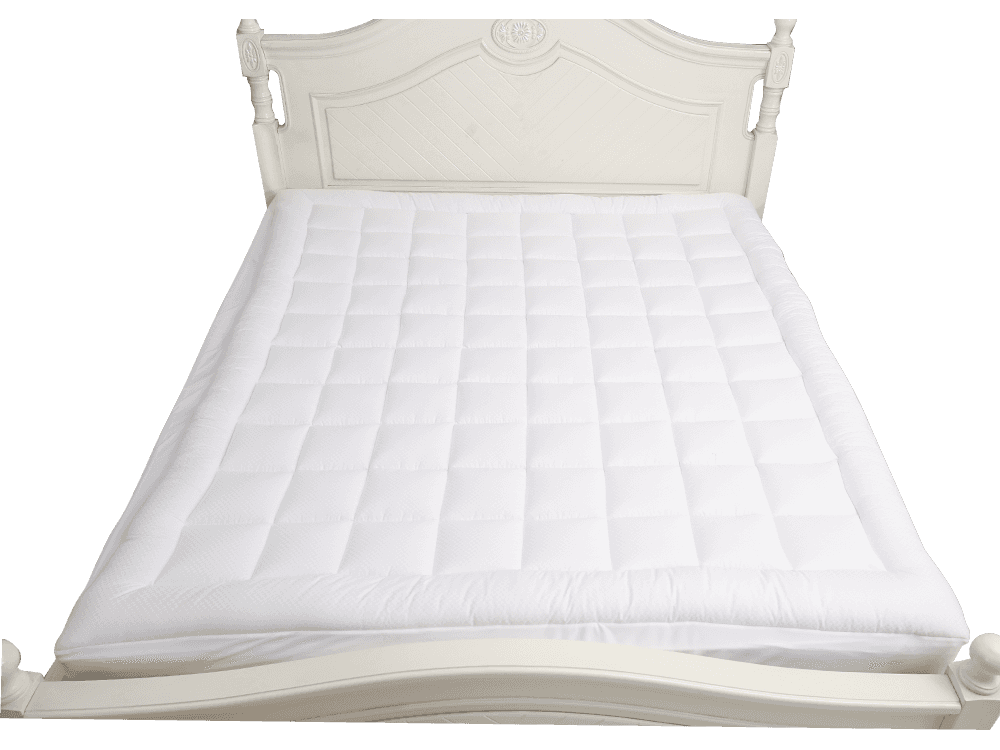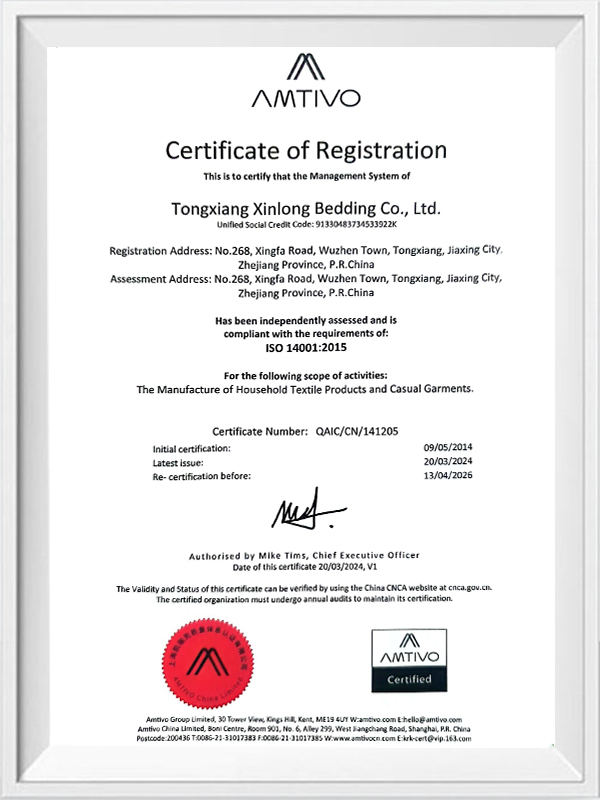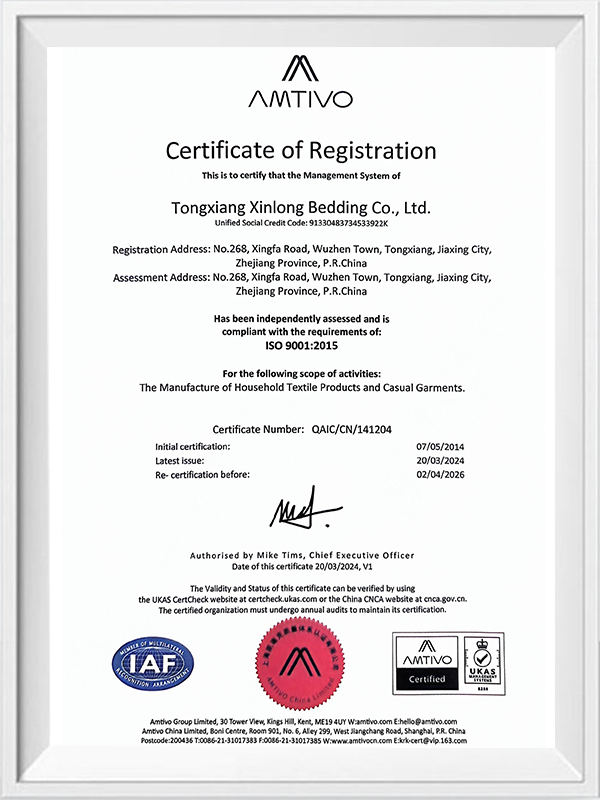The Secret Behind Premium Cotton Mattress Protectors: Why 7D Cotton Filling Makes All the Difference
At Tongxiang Xinlong Bedding Co., Ltd., we’ve spent over two decades perfecting the art of home textiles, and our expertise shines brightest in crafting high-quality mattress protectors that combine luxury with functionality. One of the standout features of our protector is its 7D cotton filling—a game-changer in terms of weight distribution, thermal regulation, and overall performance. Let’s dive into what makes this material so special and how it stacks up against other options on the market.
First, let’s talk about what sets 7D cotton apart. Unlike synthetic fillings like polyester or microfiber, which can feel stiff or overly dense, 7D cotton offers a plush yet resilient texture that adapts seamlessly to your body’s contours. This type of filling is engineered to provide consistent support without compromising breathability, making it ideal for year-round use. For those who prioritize temperature regulation during sleep, the natural fibers of cotton allow air to circulate freely, preventing overheating—a common complaint with less sophisticated materials. As a result, our premium cotton mattress protector not only enhances comfort but also ensures you wake up feeling refreshed and rejuvenated.
But how does 7D cotton compare to alternatives such as down or memory foam? While down is prized for its loftiness, it often lacks the structural integrity needed to maintain shape over time, especially under heavy use. Memory foam, on the other hand, provides excellent pressure relief but tends to trap heat, leaving users uncomfortably warm. In contrast, the 600gsm density of our cotton filling strikes the perfect balance between softness and durability. It resists clumping and shifting, even after repeated washes, ensuring that your cotton-filled mattress protector retains its form and function for years to come. This level of craftsmanship reflects our commitment to innovation and quality—a hallmark of Tongxiang Xinlong Bedding’s approach since our founding in 2002.
Speaking of quality, our state-of-the-art facility in Wuzhen Town houses some of the most advanced production equipment in the industry, allowing us to meet rigorous international standards like ISO9001 and OEKO-TEX certification. These credentials aren’t just badges of honor; they’re proof of our dedication to producing safe, eco-friendly products that customers can trust. Our team of skilled technicians works tirelessly to ensure every detail—from the quilted stitching to the raised edge design—is executed flawlessly. This meticulous attention to detail ensures that each mattress protector made from premium cotton delivers unmatched value and reliability.
Another key advantage of choosing a premium cotton mattress protector filled with 7D cotton lies in its versatility. Whether you’re outfitting a hotel room, upgrading your master suite, or seeking practical solutions for healthcare settings, this material adapts effortlessly to diverse environments. Its hypoallergenic properties make it particularly appealing for individuals with sensitive skin, while its robust construction ensures it stands up to frequent laundering—a must-have feature for commercial applications. At Tongxiang Xinlong, we understand that no two customers are alike, which is why we offer customizable sizing options to fit everything from standard mattresses to oversized luxury beds. This flexibility underscores our mission to cater to the unique needs of every client.
Of course, none of this would be possible without our unwavering focus on sustainability. The home textile industry is constantly evolving, and we take pride in staying ahead of trends by incorporating environmentally responsible practices into every stage of production. From sourcing raw materials to minimizing waste during manufacturing, we strive to reduce our carbon footprint while delivering products that exceed expectations. Our cotton mattress protectors , for instance, are designed to last longer than cheaper alternatives, reducing the need for frequent replacements and ultimately benefiting both consumers and the planet.





 Français
Français Español
Español Deutsch
Deutsch




 +86-573-88798028
+86-573-88798028